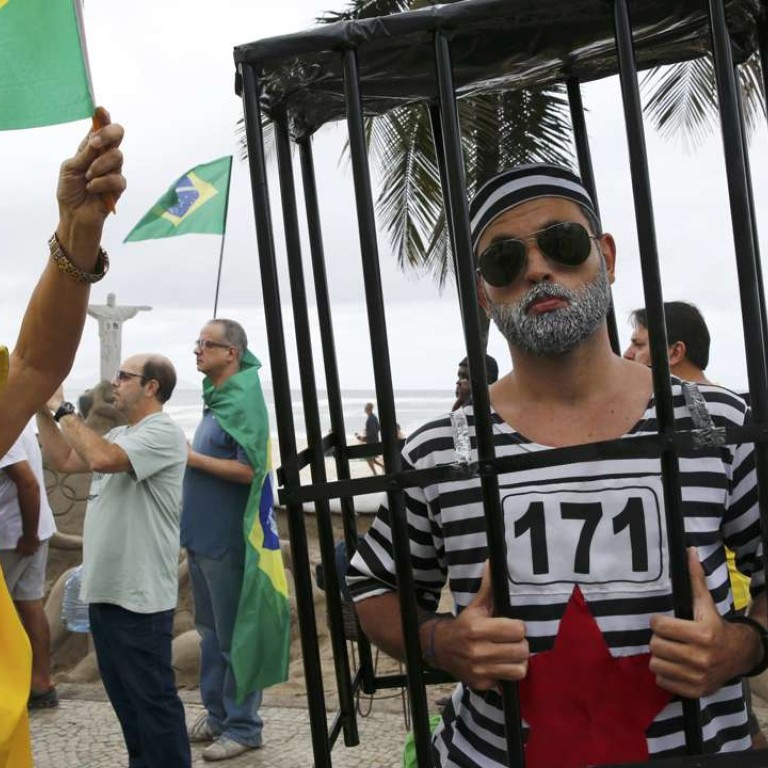
As Olympics loom, Brazilians on both sides of political crisis take to the streets
Just days before the start of the 2016 Olympic Games, Brazilians in the country’s two largest cities protested by the thousands Sunday during Brazil’s deepest political crisis in decades.
Demonstrators in Rio de Janeiro, the Olympic host city, gathered along Copacabana beach to demand the conviction of President Dilma Rousseff and prosecution of her predecessor, Luiz Inacio Lula da Silva, one of Brazil’s most powerful figures.
Meanwhile, in Sao Paulo, the business capital of Latin America’s largest and most populous nation, protesters rallied in support of Rousseff, Lula and their left-leaning Workers Party.
The anti-government crowd in Rio stretched nearly as far as the eye could see along the beach. They chanted, sang and wore the nation’s colours of yellow and green.
Aware of the large presence of international media, some of the protest was conducted in English.


“It’s a lot of spending for uncompleted works that will serve for nothing after the games,” said William Dalvo, waving banners with his wife, Roseangela. “What people want is security, education, health care. That’s what’s important. … We usually just want Carnival and soccer, but for the first time people are waking up!”
Much of the anger was reserved for Rousseff, the successor to the populist Lula — who still leads national polls for 2018 elections but on Friday was ordered to stand trial on obstruction-of-justice charges. The case against him was brought by crusading judge Sergio Moro, whose name was chanted repeatedly by the throngs.
A former trade union leader who helped end Brazil’s military dictatorship 30 years ago, Lula was the face of modern left-wing politics in Latin America for the first decade of the 21st century. He embraced open trade and was friendly to business, but focused government resources on the poor.
Today, Brazil is mired in a two-year recession, and Lula’s image has taken a beating, as has that of the Workers Party.
Lula was implicated in an investigation of corruption at the state oil company, Petroleo Brasileiro, or Petrobras. He’s also being investigates for illicit enrichment, a catchall term used against politicians who become wealthy in office.
Rousseff has been temporarily removed from the presidency pending an impeachment trial in the Senate for mismanagement of public funds. That trial is expected in late August, after the games. If she is removed permanently, the vice president who is now filling in for her, Michel Temer, would take over. He, too, faces accusations of corruption.

